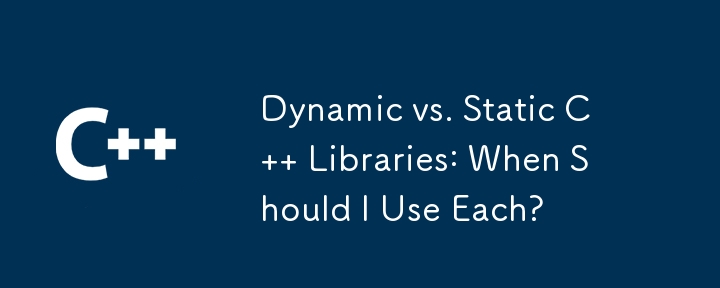
Dynamic vs. Static Libraries in C : A Comprehensive Guide
When constructing a class library in C , programmers face the dilemma of choosing between dynamic (.dll, .so) and static (.lib, .a) libraries. Each option offers distinct advantages and drawbacks, making the decision highly context-dependent.
Static Libraries
- Increase the binary's code size by incorporating the library code directly into the binary.
- Ensure that the code version compiled with is always the version executed due to mandatory loading.
Dynamic Libraries
- Stored and versioned separately from the binary.
- Allow for the possibility of loading a different version of the library than the original one shipped with the code, provided binary compatibility is maintained.
- Only loaded when called upon, reducing the initial startup time.
- Facilitate code sharing among multiple components, optimizing memory usage.
When to Use Which
Dynamic Libraries:
- Preferred when flexibility and the ability to update code without recompiling the entire application are crucial.
- Ideal for shared code across multiple components.
- Particularly suitable for large libraries that may undergo frequent updates.
Static Libraries:
- Appropriate when code stability and performance are paramount.
- Recommended for small libraries that infrequently require modifications.
- Suitable for environments where dynamic library loading is undesirable or restricted.
Ultimately, the choice between dynamic and static libraries depends on the specific project requirements and constraints. By understanding the key differences and appropriate usage scenarios, developers can make informed decisions that optimize their C class libraries.
The above is the detailed content of Dynamic vs. Static C Libraries: When Should I Use Each?. For more information, please follow other related articles on the PHP Chinese website!






